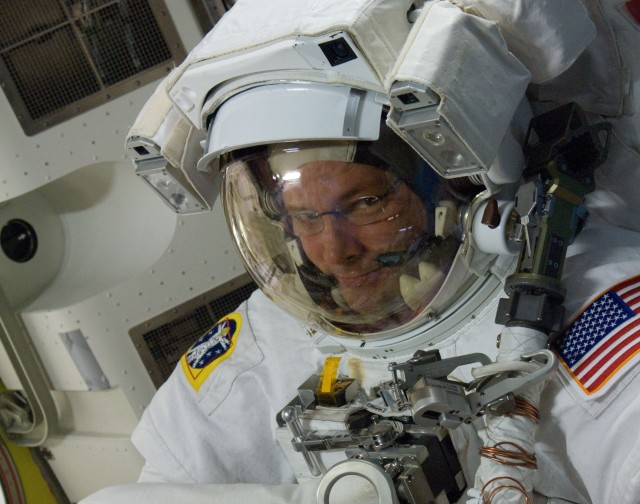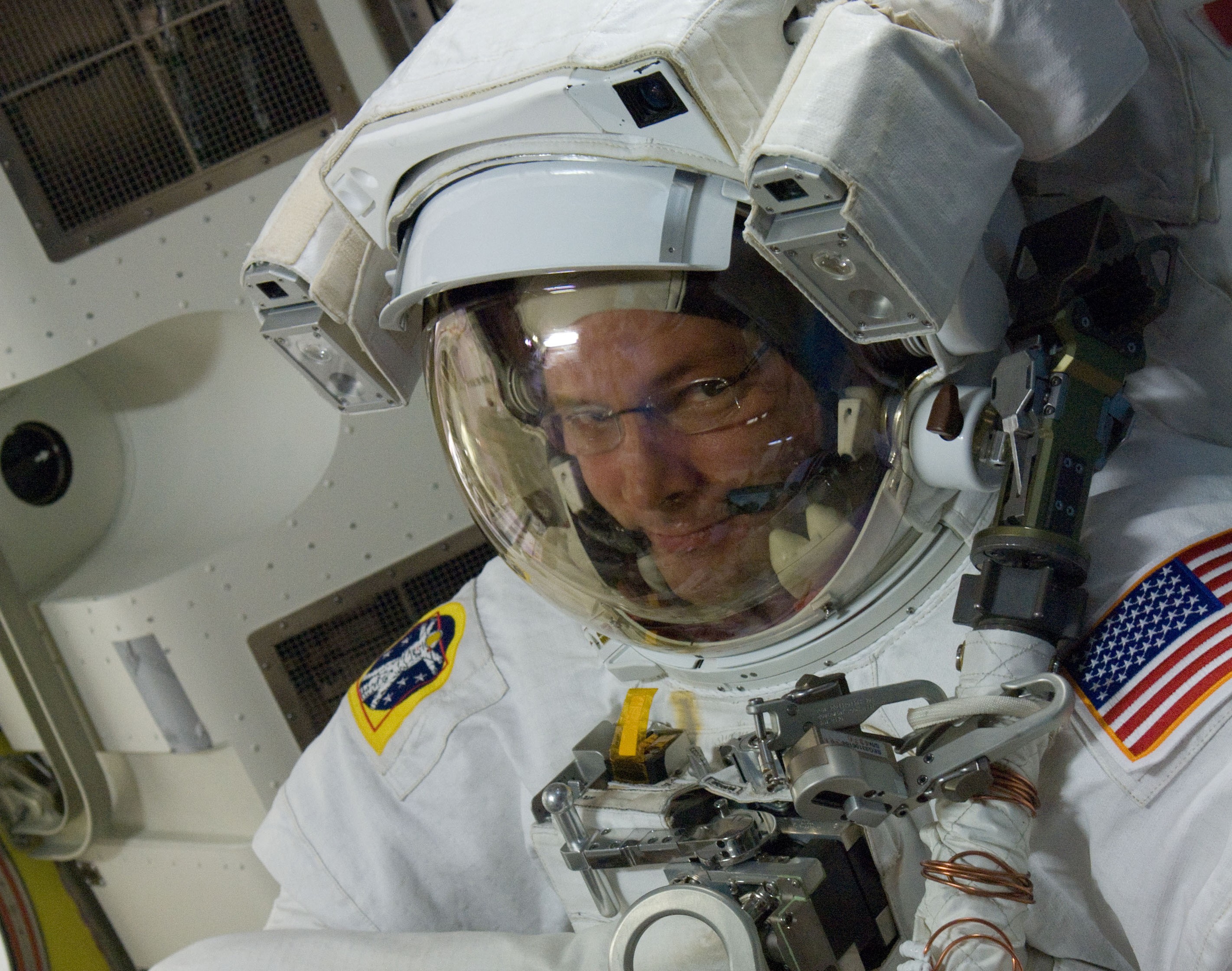WASHINGTON (Army News Service, Oct. 14, 2010) -- The first U.S. Army astronaut to command the International Space Station said Wednesday the experience has been the pinnacle of his career.
Army Col. Doug Wheelock with the Army Space and Missile Defense Command, who had already been aboard the ISS for four months, took command of the station Sept. 22. Wheelock talked with Army reporters Oct. 13 via satellite about his responsibilities for the six-member team of international astronauts, the station's equipment, maintenance and scientific research.
"It would be hard to imagine something that would top this ... I have to pinch myself every day," Wheelock said of the experience. "I feel very blessed just to be here ... it's the opportunity of a lifetime."
Travelling at 17,500 miles per hour, or about five miles per second, the space station orbits the earth every 90 minutes, giving the astronauts on board views of a sunrise or sunset every 45 minutes.
Commanding the space station, Wheeler said, is similar to a small unit command in the Army.
"Like the commander of any unit, I'm responsible for everything that goes on here," he said. It's a real fun job, and I've got a great crew, which makes it very exciting."
The station's primary focus is research, and as Wheelock describes, it is an "orbiting laboratory." Wheelock explained that ISS research includes studies on bone loss, cures for cancer, new methods for transporting pharmaceuticals through the body to fight off disease, and how humans can be better stewards of the planet.
He said that specific emphasis is placed on what happens to the human body while in space, which will help future generations make trips deeper into the unknown.
But Wheelock didn't always dream of becoming an astronaut -- he started out his career as a pilot.
"Early on it was too big of a dream for me ... I just wanted to fly," he said.
Wheelock explained that as a young student, he thought the notion of going to space was beyond his reach.
But after stints at West Point, and later as an experimental test pilot with the Army Aviation Technical Test Center, Wheelock set his sights a little higher.
"I think that's where everything came together for me," Wheelock said of test-pilot school, where, he explained, he was exposed to people who were involved in the space program.
Wheelock went on to assignments as NASA's director of operations at the Gagarin Cosmonaut Training Center in Star City, Russia, and later aboard the STS-120 Discovery in 2007. Prior to joining the crew on the ISS, Wheelock had already clocked 362 hours in space, including more than 20 hours during three space walks.
Wheelock said challenges the ISS staff faces include extreme temperature swings -- the outside temperature can shift up to 500 degrees in 45 minutes. Also, solar and cosmic radiation can wreak havoc on the station's computers and electrical systems.
"Space always seems to have surprises for us," said Wheelock.
He also explained that working with his Russian counterparts has been a rewarding experience.
"It's a real thrill," he said. "For me, it's a neat experience to look back and see where we've come from. It's really encouraging, and I think it speaks volumes of those who have gone before us and have paved the way."
Wheelock received his flight training during the Cold War, and he said he's glad America and Russia are now working so closely together through their space programs, and hopes that future generations will carry on this partnership.
In addition to the collaboration displayed by astronauts from different countries on the ISS, Wheelock said being in space has changed his perspective on humanity.
"It makes you think about the things that we worry about ... petty differences," Wheelock said. "When you look down on the planet, you can see the continents, but there are no borders. These petty differences that you think about when you are on earth seem to fade away, and you begin to think of things in a broader picture."
"We're all trying to live and work together on this little blue marble in the middle of space, and sometimes I think we tend to lose perspective," he continued.
Wheelock said it has been challenging to be away from home for several months, but he had very much looked forward to the experience of living in space, and has not been disappointed.
"When you look at deep space, it's so dark and so vast, it's actually pretty frighteningly empty ... and then you turn toward the earth, and it's this explosion of color and explosion of motion and life in the middle of this vast wasteland of nothing," he said. "It's quite a dramatic contrast -- looking at the earth compared with the backdrop of deep space. It really takes your breath away."
In the future, Wheelock said he'd like to return to space if possible. He is due to return to earth in November.
Related Links:
ARTICLE: Army astronaut makes 6th longest spacewalk in history


Social Sharing